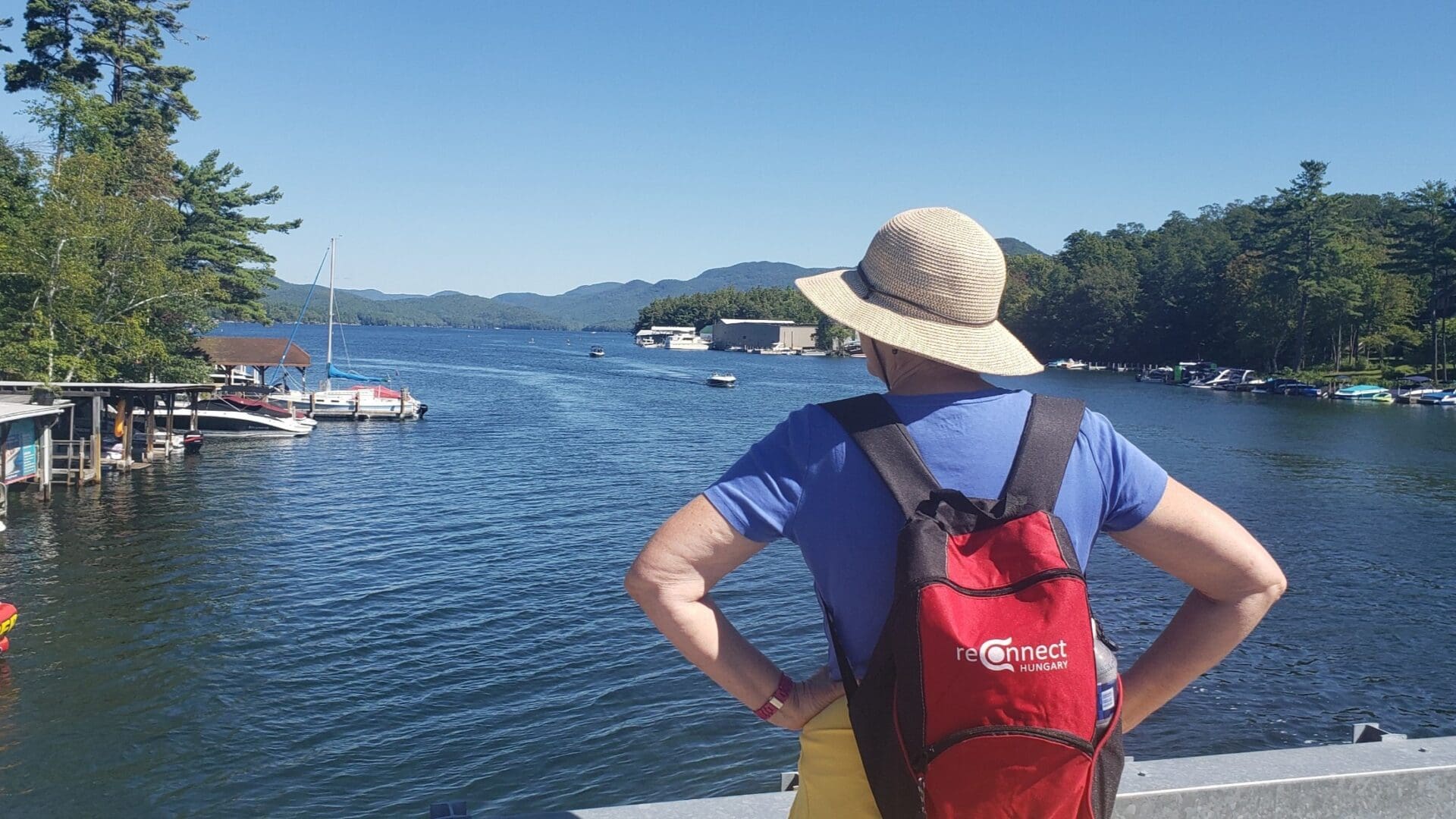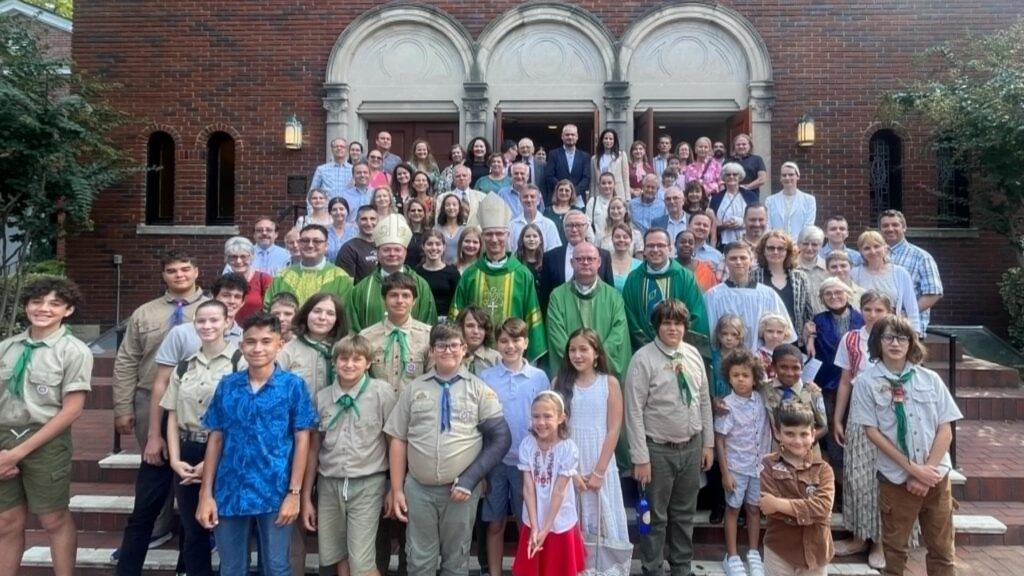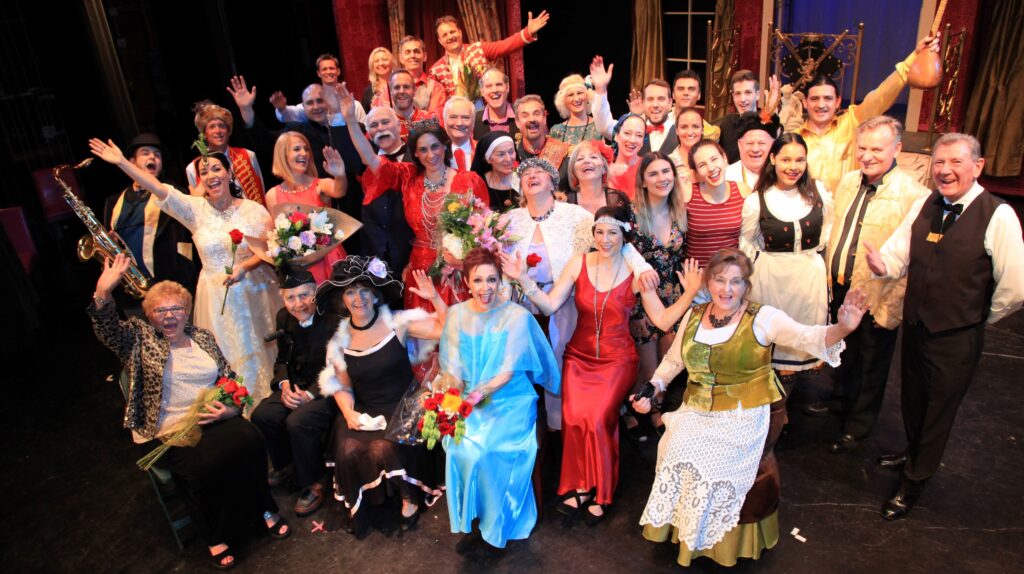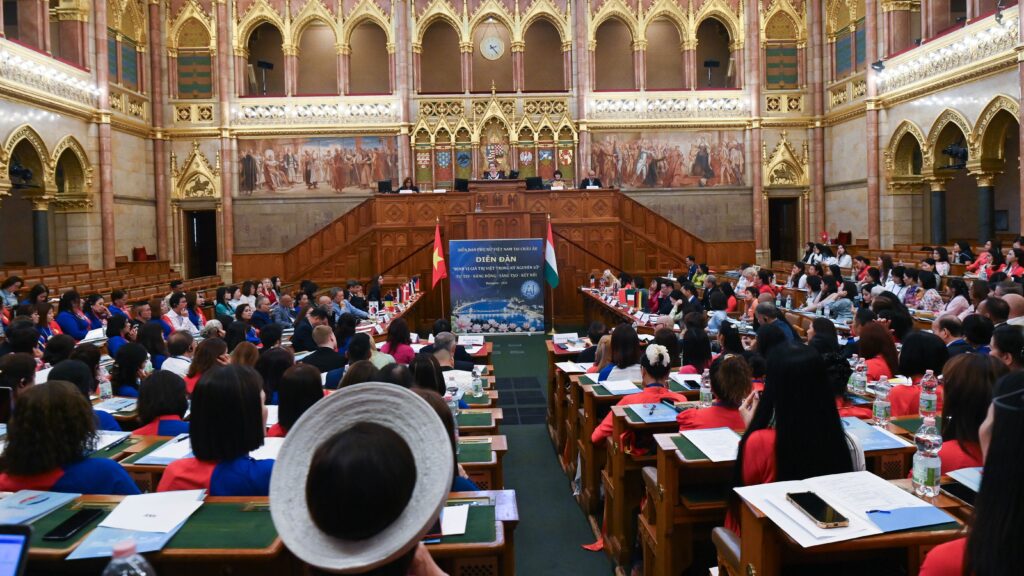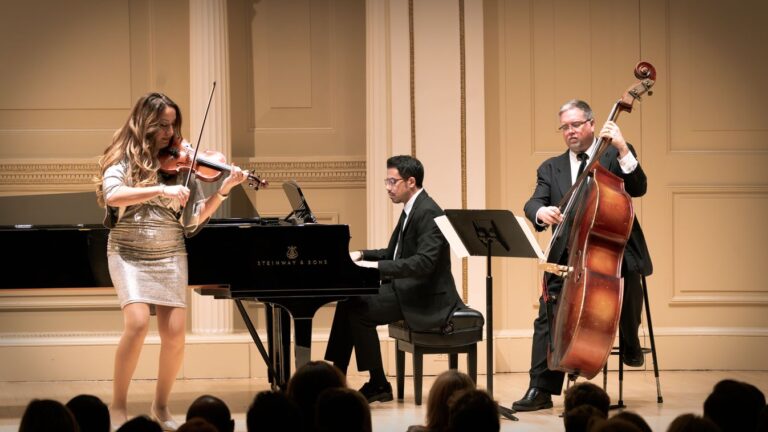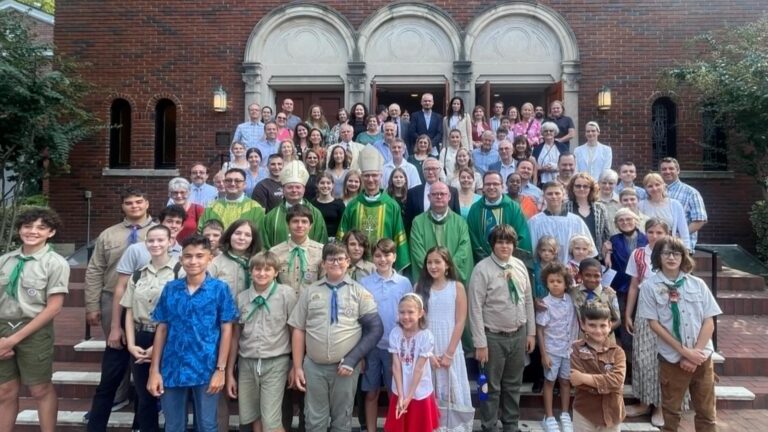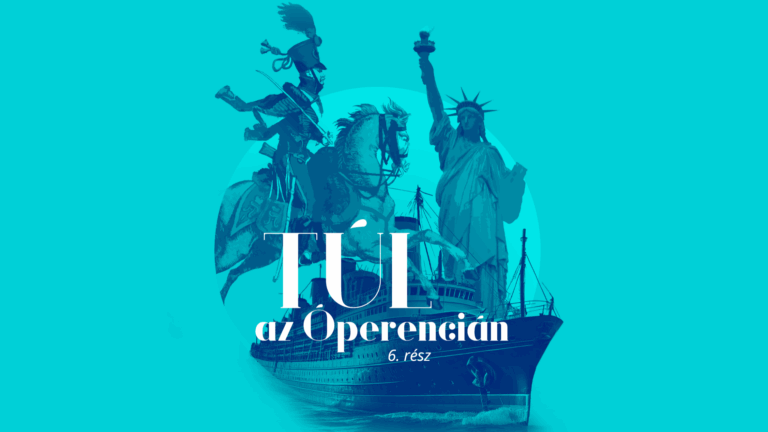Gabriella Vajtay is a second-generation Hungarian American, who, together with her husband and four grown sons, is an active member of the Hungarian community in New Brunswick, New Jersey. Our conversation was prompted by the application deadline for the Reconnect Hungary Birthright Trip, a program of the Hungarian Human Rights Foundation (HHRF). The Program consists of several months of preparation and a two-week visit to Hungary for young adults of Hungarian descent, aged 18–28, living in the US or Canada.
***
Tell us about your parents and family.
My parents came to the United States in 1956, and they met in New Brunswick after fleeing Hungary; I was born here. There was a large Hungarian community in New Brunswick back then and it still exists today. My parents were married in St. Ladislaus Roman Catholic Church where Pista, my husband and I were married as well. We were both baptized there, as were our four children. I have been a Hungarian scout in New Brunswick all my life, and I met my husband in the scout troop as well. We have four sons: Stephen Michael III, Andrew, Gregory and Daniel. They were all scouts in the same troop we were and went to Hungarian weekend school in New Brunswick every Saturday morning. They all speak Hungarian fluently. We are still active in the local Hungarian community. Pista has always been active in the Hungarian Scout Association in Exteris (KMCSSZ), and currently is the vice president of the organization. I support the local Hungarian associations and initiatives by organizing and working at events. Our sons also help wherever they can: Daniel is active in scouting on a weekly basis at the Scout Home on Plum Street in New Brunswick.
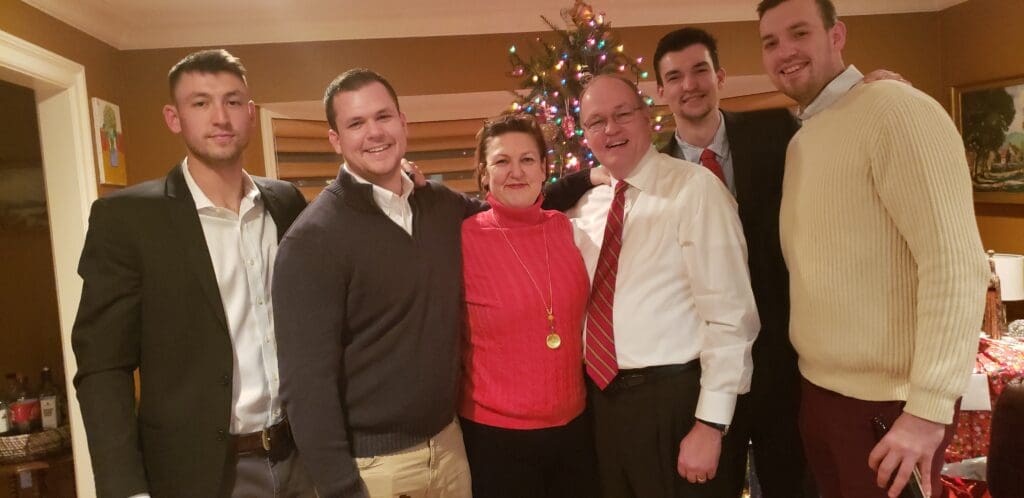
Where did you get your strong Hungarian language skills from?
We spoke Hungarian at home because our parents did not speak English that well, but well enough to run their own businesses. We used to go to Hungary quite a lot when I was a child, spending several weeks there every summer. All our relatives lived in Hungary, as my mother and father were the only ones from their extended families who immigrated to the United States. In my later teenage years, I was not able to spend as much time there, because of my busy schedule at summer scout camps and ballet rehearsals. Later, after I was married and had children, we managed to visit Hungary every three years or so. Pista and I made a conscious effort to speak Hungarian exclusively at home while the kids were young. The real question is, will our one-month-old grandson, Stephen Michael Vajtay IV, speak Hungarian? My daughter-in-law does not speak Hungarian, but she is very supportive, so we will do our best with my son to make it possible for little Stephen the fourth to be bilingual.
What did you do before Reconnect?
While the children were growing up, I was at home with them, so I was able to help as the President of Scouts Parent Association and at the Hungarian School as well as at the grammar and high schools my sons attended while growing up. I was always active in organizing the annual Hungarian Festival in New Brunswick, the Hungarian Scout Ball for the Hungarian Scouts in Exteris, and other larger and smaller events. Once I took over the role of organizing the vendors for the Hungarian Festival, I realized we would have to increase the number of vendors to pay for the bills, so the idea was that we should try to get enough vendors to fill the streets from the Reformed Church to the American Hungarian Foundation (AHF). It did not work out perfectly, but we have increased the number of vendors from five or six to over sixty over the past few years.
I suppose it is because of all these experiences that you were asked to join Reconnect Hungary, a program of the Hungarian Human Rights Foundation (HHRF), founded by László Hámos.
HHRF is a small organization, where we all try to be involved in all aspects of the calling. I try to contribute to HHRF projects, but I am mainly involved with the Reconnect Hungary Program. The program started in 2011, at the suggestion of Governor George Pataki’s daughter Allison, with the goal of helping second and third generation youth in North America to discover their Hungarian roots and learn about Hungary. In the summer of 2012, the first organized trip to Hungary took place, where participants met Prime Minister Viktor Orbán in the Hungarian Parliament.
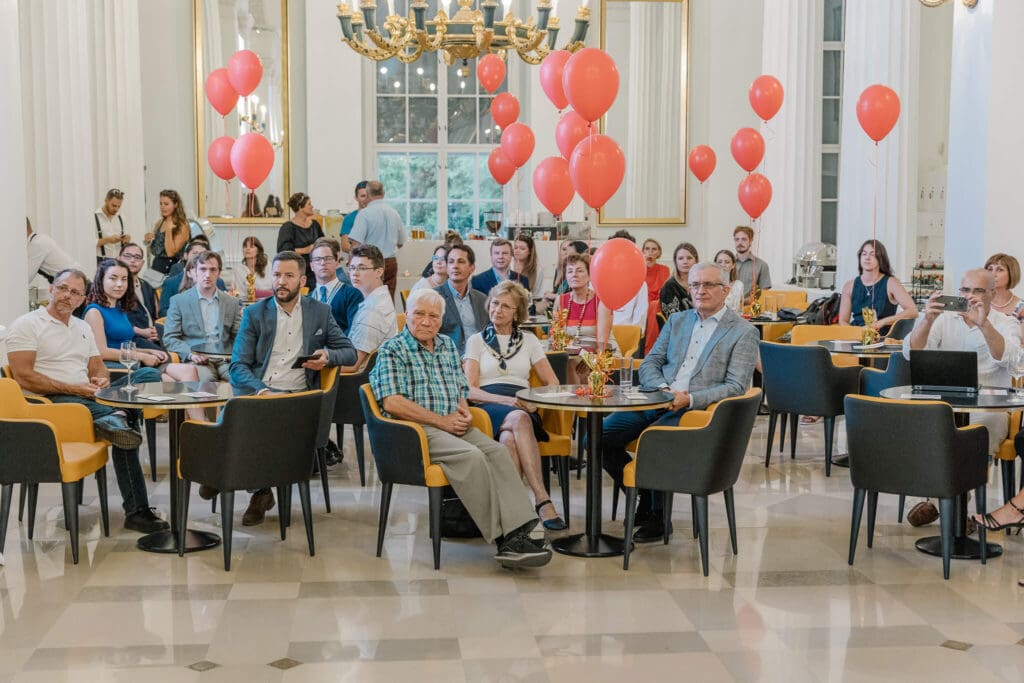
What are the basic conditions, how many people apply, and where do they typically come from?
Applicants must be US or Canadian citizens aged 18–28 of Hungarian descent, with a high school diploma. There are no Hungarian language skill requirements. We have had applicants from all over America and Canada, with perhaps the exception of Alaska. We have had many participants from California and the west coast, even as far as Hawaii. We try to put together a group that represents all of North America. We select those who, based on a personal interview, seem to really want to go and are interested in the whole program, Hungarian culture and history. Out of 30–35 applicants we usually accept 20–25. I feel like that is a good number for both group dynamics and logistics.
The 2024 trip runs from 26 June to 9 July; applications close on 29 February.
We already have several accepted applicants, but we welcome others. We try to promote the program on social media, we have in-person presence at many Hungarian Festivals, and we count on the alumni to spread the word, too.
Selection is followed by serious preparation. Why is this necessary?
We interview all applicants, and as soon as the group is assembled, we start sending them materials, for example, on Trianon or Roma issues, on traditions and customs. For three or four months, we actively send information, and we also lightly test participants about the materials sent so that they have some knowledge prior to the trip. Some of the participants speak Hungarian or have some basic knowledge, but most of them do not speak the language. We start the Birthright trip in New York at the Hungarian Consulate, where everyone attends an orientation day. We introduce them to the most useful Hungarian words, play familiarization games with them, and have a full day of team building.
What is included in the two-week program?
Szilvia Baba, who lives in Budapest, is a master at putting the program together. She knows basically “everyone”. When we put the program together, we always have more ideas than time and must think about what we are going to omit. Some of the must-sees each year are the Dohany Street Synagogue, St. Stephen’s Basilica, and the Széchenyi Baths. We always start with a ‘treasure hunt’, so the participants can explore the city by themselves. It is also very important to take a trip outside of Budapest so that they have a fuller picture of the country. Last year we went to Veszprém, because it was the European Capital of Culture, and we usually include Tihany to get the Balaton experience. The Hungarian ‘táncház’ (dance house) is always part of the program, too. Often, we are able to go outside the country to a nearby region with an ethnic Hungarian population or cultural and historical landmarks; this year it looks like we are going to Lendva, in the Mura region (Slovenia).
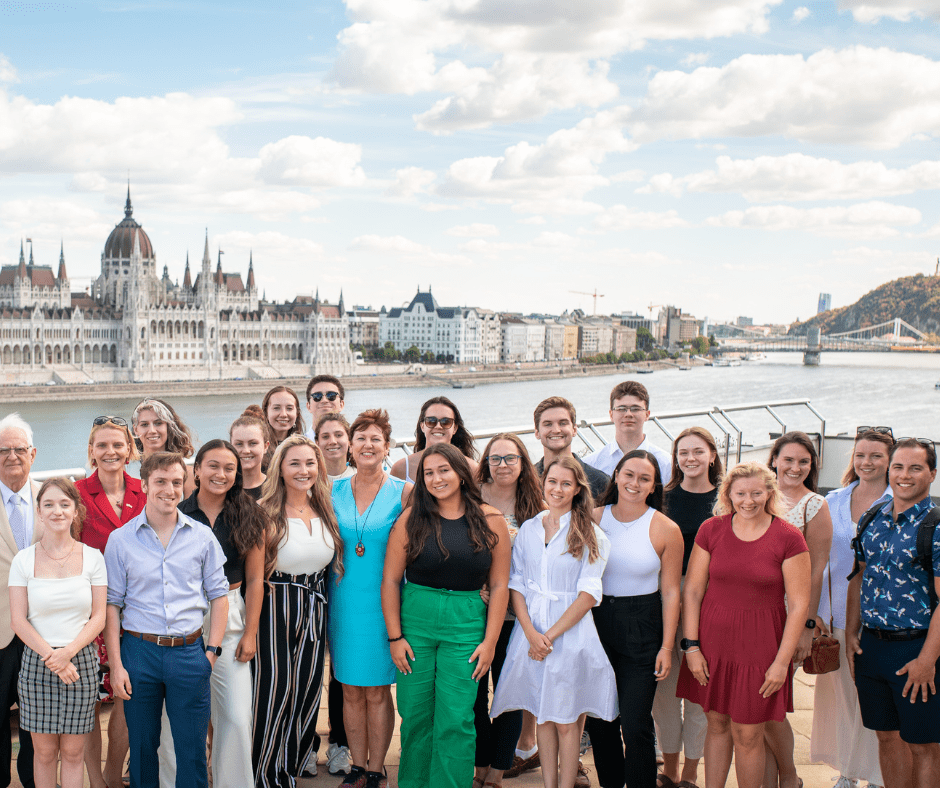
Every year we organize a one-day human rights workshop, which is probably one of the most important programs, for which we invite legal experts from Hungary, Transcarpathia and Transylvania to speak to the group. The purpose of the day is to inform the group of Hungarian minority rights issues. For two years now we have been holding the workshop at the Ludovika University of Public Service. In the past we have invited Ferenc Kalmár, Ministerial Commissioner at the Ministry of Foreign Affairs and Trade responsible for developing neighbourhood policies, Balázs Tárnok PhD, Director of the Institute for European Strategy Research Institute of Ludovika University of Public Service; Andrea Bocskor PhD, a Hungarian politician from Transcarpathia, and Iván Gyurcsik PhD, advisor to the Rector at the Department of Regional Cooperation at the Ludovika University of Public Service, head of the university’s Minority Policy Research Group, and former ambassador of Hungary to Poland. We also manage to meet almost every year with Zsolt Németh, Chairman of the Foreign Affairs Committee of the Hungarian Parliament, for a roundtable discussion, where there is a real UN-feeling: everyone gets their own microphone and can raise questions. I feel they get very honest answers from Zsolt Németh, who is a big supporter of the program. We also visited Dr Zita Bencsik when she was the head of the North American Division of the Ministry of Foreign Affairs and Trade. She hosted us in her beautiful office and gave an excellent presentation on International Relations.
It costs $2,100, which includes basically everything. What else is there to know about funding?
The participants must travel to and from New York at their own expense, but everything else is included. Their co-pay covers about one third of the total cost. Although the Hungarian state supports us through the Gábor Bethlen Fund, we still have to hustle to find funds to cover expenses. Fortunately, we have been able to organize our annual charity event at the consulate in New York for the last four years, and this year, on 11 May, we plan to have a similar event at the Hungarian House in New York.
On your website there are ‘alumni obligations’ to fulfil. Could you give some examples?
Alex Frohlinger, our energetic Outreach Coordinator has been instrumental in keeping the alumni group together. There are many Reconnected Participants who we stay in touch with regularly. For example, if I need a promotional video, I’ll turn to one of our talented videographers in the group. Those who live in the New York area are happy to volunteer for us at the above-mentioned charity dinners. There are Hungarian festivals in several major cities, and if I call somebody from that area to go there and promote Reconnect Hungary, they are happy to do that as well. Sometimes they just call me to ask if I have seen this or that article, from Hungary, Transcarpathia or Transylvania. We have developed such a friendly and even familial relationship, and I love them all. We encourage them, wherever they live, to get more involved with Hungarian organizations in their area, but it is not always easy.
Following the Reconnect Hungary Birthright Program there is a one-week add-on trip to Transylvania. Tell us more about that.
Transylvania is such an important part of Hungary’s history.
We want the participants to know how and why there are so many Hungarians living in Romania.
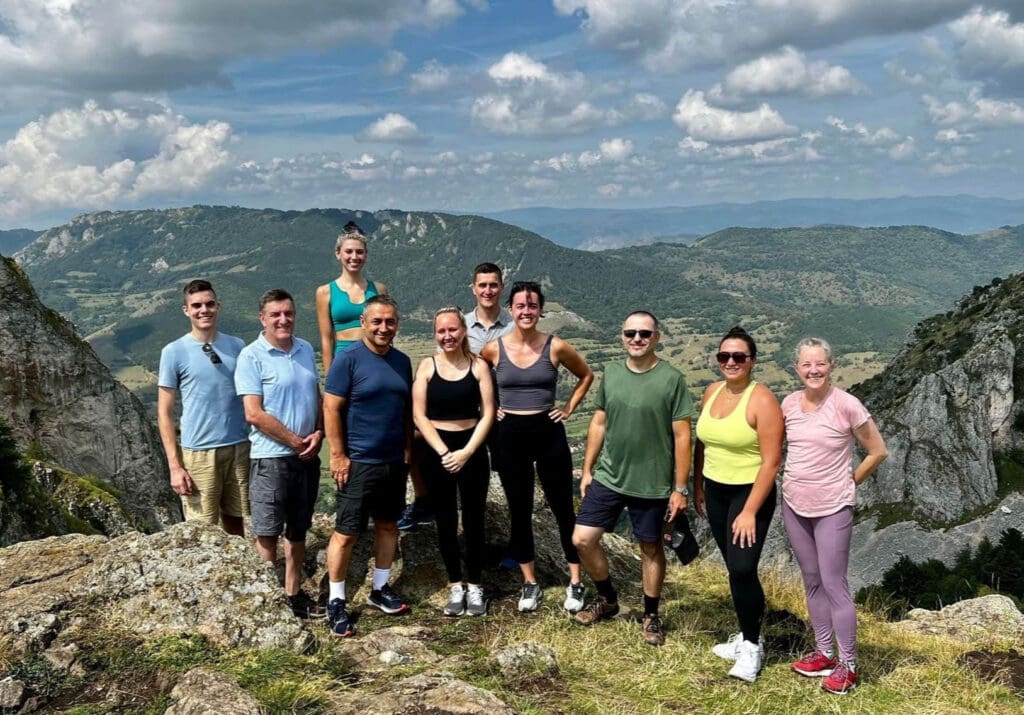
On the excursion they will tour Kolozsvár (Cluj), visit Bánffy Palace in Bonchida and the Salt Mines at Torda (Turda), hike to the Székelykő. They will visit the Székely Region, the Csángó Region, and the mediaeval fortress town of Segesvár (Sighișoara) while exploring authentic Hungarian traditions. On this trip they learn to weave, to bake chimney cakes, and visit villages where milk is still carried in horse-drawn carts. Our colleague Árpád Zsolt Moldován, who lives in Kolozsvár (Cluj), organizes the trip with them 24/7 in Transylvania and is loved by all. As not everyone manages to get away for three weeks at a time, because of study or work schedules, it is common that the participants go to Hungary first and then return the following year to do the Reconnect Transylvania trip. The cost for this add-on portion is $1300.
You also have a three-to-six-month Transylvanian scholarship program: Reconnect Transylvania+.
This program is a full scholarship. So far, we have secured scholarships for four people in Transylvania who live and work in Kolozsvár (Cluj) at various schools and organizations. Some of our partners include Sapientia University in Marosvásárhely (Târgu Mureș) and the Romanian Hungarian Democrat Association (RMDSZ in Hungarian, which is an ethnic Hungarian political party in Romania). We already have two interested applicants for September and are hoping to find the funds to sponsor another qualified young adult to live and work in Transylvania.
Last year you were awarded the Hungarian Golden Cross of Merit by the then Community Diplomat Péter B. Nagy as the Director of the Reconnect Hungary Birthright Program, and this year both you and the Program are recipients of another award.
On 20 April, the American Hungarian Foundation (AHF) will be holding their annual gala at the Rutgers Club in Piscataway, New Jersey. This event was previously known as the Carousel Ball and has been organized for many years by the AHF founder, Ágoston Molnár and now by the present Director Melissa Katko Pepin. I am very pleased that Reconnect Hungary was chosen to be honored, and I am elated to receive the Distinguished Service Award that has been presented to many awesome people before me. I hope I can do the title justice.

